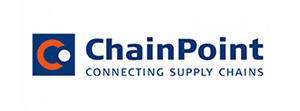What goes for consumers, goes for companies as well. We sometimes forget that companies, large and small, are made up of employees who are also consumers and who have the same tools available to them. For that reason, we see that both companies and consumers want products that are sustainable, produced under fair labour conditions and of excellent quality. After all, there is enough evidence out there now to show that employees are more engaged when their company follows a sustainable business strategy. We can see, as author Daniel Pink writes in his book Drive, “such models tap into the higher sense of purpose that we humans have, and that currently many employees yearn for”.
This increase in awareness and shift in demand means that transparency is now crucial. Companies need to gain insight into where their suppliers are, how they obtain their supplies, and every step in that entire chain needs to be known and traced.
Companies can no longer say to the consumer that they simply don’t know. Sustainability, forced labour and scarcity of raw materials are all complicated issues that companies are working to overcome. Due to the complexity of these problems, the solution is also a complicated one.
Fortunately, the same technology that has given consumers their voice can also provide insight to companies. The internet, IT and software are used daily to give companies insight into their supply chains and the solutions continue to grow. At ChainPoint, when a new customer approaches us for the first time, their first question will probably be
how can they map their supply chain? When you map a supply chain you gain knowledge that ultimately leads to new questions. Is it possible to trace produce down this mapped supply chain? If there are problems found in the supply chain, can you use software to audit these problems? How do you analyse and present your data? ChainPoint has a vast and long experience in all of these topics and we help companies to gain more insight into their supply chain one step at a time. You have to start somewhere and we are there to help. In the end, it’s all about connecting: connecting supply chains, connecting technology and connecting consumers with the product that they want.
Members of The Consumer Goods Forum (CGF) have recognised the importance of transparency and clarity across its pillars, from food safety and sustainability to consumer health and beyond. The CGF continues to support its members as they collaborate to drive the industry forward and to empower consumers with increased knowledge. Transparency will be even more important to retaining and building consumer trust in the years to come and, here at ChainPoint, we are proud to be helping be part of the solution.
Quirijn Foeken
Marketing & Communication
ChainPoint



